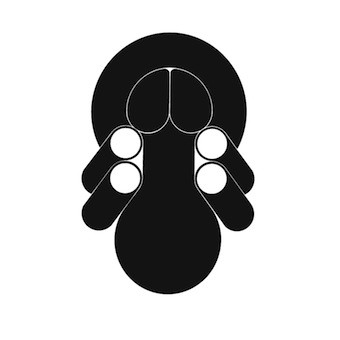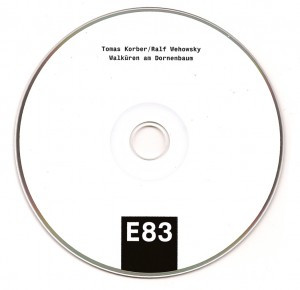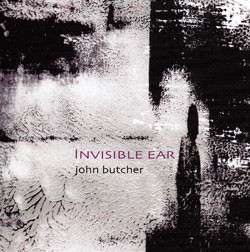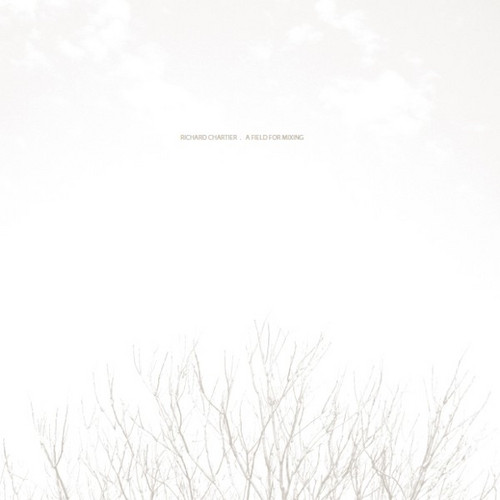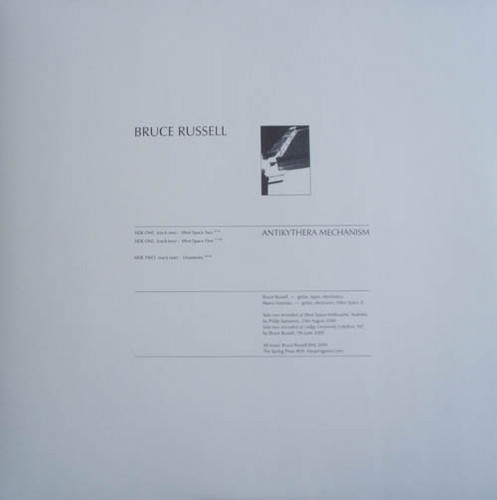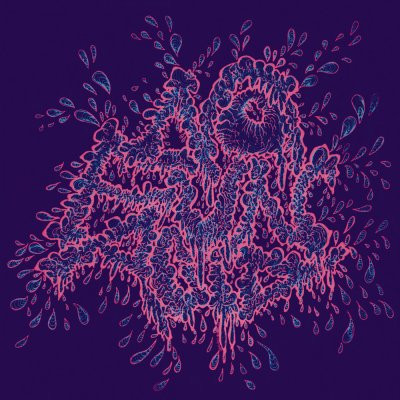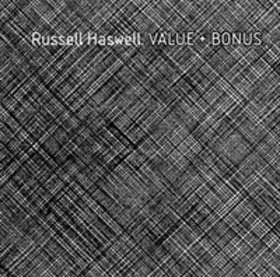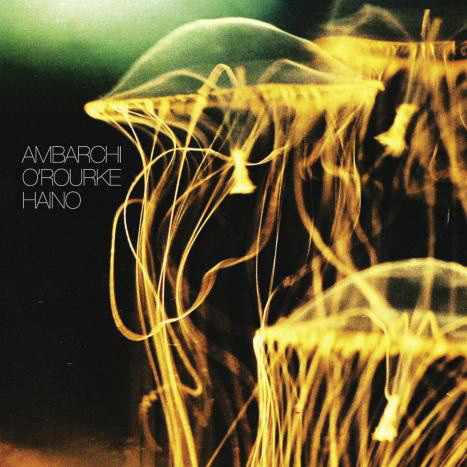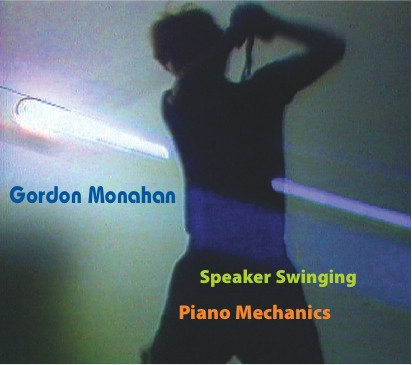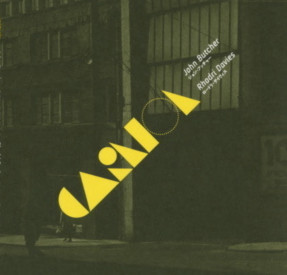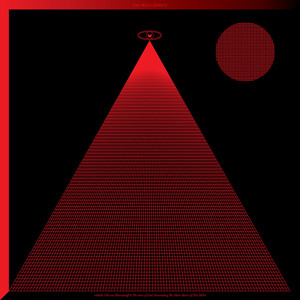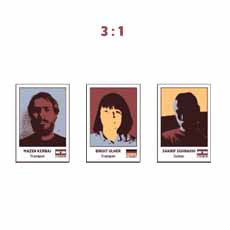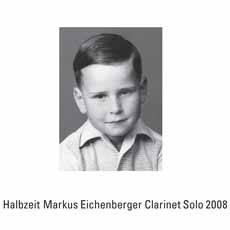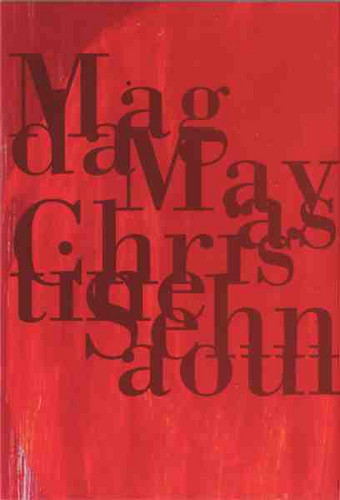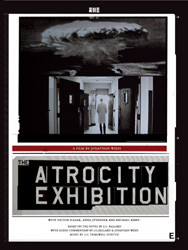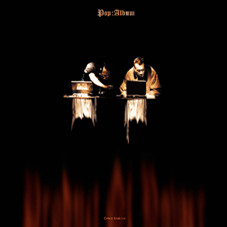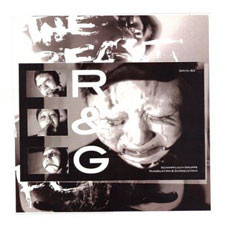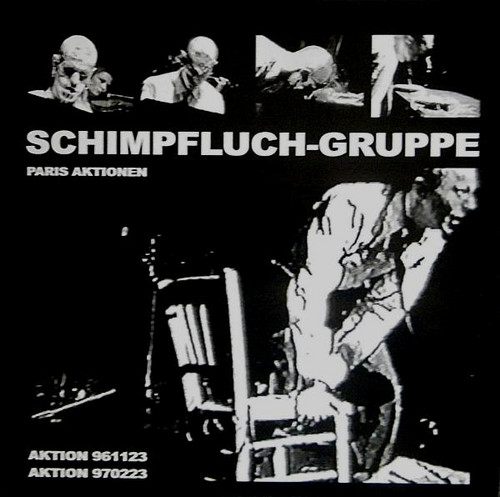If You Want To Fuck The Sky, Teach Your Cock To Fly
Andy Bolus (Evil Moisture) armé d'électroniques maison et autres oscillateurs, Korg 800DV ou Revox (!) est accompagné de la voix de BB soit Brigitte Bordelle, qui crie quand on la chatouille et qui crie aussi quand on la cogne. If you want to fuck the sky, teach your cock to fly Ñou si tu veux un frère, dis à ton père de baiser ta mère Ñ ou quand les cons voleront, tu seras chef d'escadrille Ñ est un excellent disque de bruits divers et variés avec moults rebondissements dynamiques, cut-u…
S/T
This follows NHK's sold out 12" on Raster Noton. This is Important's final release in a 4 record series featuring the work of the enigmatic Japanese artist Kouhei Matsunaga. NHK began in Osaka in 2006 between Kouhei and Toshio Munehiro. Their previous work, titled Unununium, can be found on the Raster Noton label.These experimental electro-rhythmic compositions sound incorporate beats, noise and a modern aesthetic.
Walküren am Dornenbaum
This three year-long collaboration begun in 2006 when Korber and Wehowsky embarked on intense recording sessions in Eggenstein, where the latter resides, lasting several days. The output from these sessions forms the basis of this work, augmented by additional field recordings and various electronic manipulations. Korber and Wehowsky used the same software which allowed them to exchange the pieces at any stage of the compositional process, so that every detail of the music could be shaped in a t…
Invisible ear
Two decades ago, saxophonist John Butcher abandoned his doctoral pursuits in theoretical physics to pursue a life in improvised music and has since become one of the genre’s leading instrumental and structural innovators. Butcher’s pursuit of extended techniques has yielded and continues to yield, as indicated by this most recent solo outing, a treasure trove of unfathomable timbral and dynamic possibilities for an instrument whose role in experimental music seems to consistently teeter o…
A Field for Mixing
'Richard Chartier's monochromatic aesthetic has come to define an audio culture surrounding minimalism. His craftsmanship, working predominately with sounds that exist at the edges of perception is a powerful, albeit subtle statement about notions of space and sound density. With A Field For Mixing', chartier brings the physicality of space directly into his compositional practise. Recording a variety of small and large spaces in Australia, Japan and the USA (amongst other locations), chartier …
Antikythera mechanism
Pressing #01 in an edition of 250 copies on 200 gram virgin white vinyl. A new solo LP from this New Zealand expiremental icon. An album comprised of throbbing guitar and tape loop improvisations recorded throughout Australasia. The LP also includes a duo piece with Melbourne based guitar-electronics destructionist Marco Fusinato. bruce lives and works in Lyttleton, New Zealand. He is a member of The Dead C, A Handful of Dust and founder of the Corpus Hermeticum and Xpressway record labels.
This is no fun acid 02
'In the beginning there was Roland's founder Ikutaro Kakehashi and an arsenal of computer controlled analog jock boxes designed specifically to outmode the trad rock (read: human) rhythm section... the circuitry was so tightly wound however, so rooted in synthesis that it failed to meet its promise. It wasn't until the mid-80s that the TB-TR system took novel form as acid house; a simple but novel attitude shift that saw an embrace of extra-terrestrial machine funk aesthetics converging with the…
Value + bonus
'Combining CD player demonstration test signals, 24 bit digitally recorded improvised freeform analog pedal-electronic noise, direct to HD computer generated and recorded noise, flashbacks from the 1980s of 303 and 909 noise assaults including free-style repeat and reverse editing, a frog call editing experiment, finishing off the second disc is a unedited long-form radio de-tuning session! Value + Bonus is the sixth solo album release by Russell HASWELL. It comes in deluxe no fun gatefold jack…
Tima formosa
'Black Truffle presents a stunning document of the debut meeting of international trio Oren AMBARCHI, Jim O'Rourke and Keiji HAINO. Recorded live at the Playhouse, Kitakyushu, Japan in January 2009, Tima Formosa retains a mysteriously alien atmosphere throughout its three lengthy explorations with AMBARCHI's mesmerizing textures and signature, deep guitar tones beautifully merging with O'Rourke's Tudor-esque piano-feedback interjections. HAINO provides the icing on the cake via his melancholic,…
Piano mechanics - Large piano magnifield
This album was co-produced by gordon monahan and the Canadian Broadcasting Corporation. 'Large piano magnified' was commissioned for the CBC radio program Two New Hours by executive producer David Jaeger. Recorded and produced at CBC Radio, Toronto, from August to December, 1985. Recording technician: David Quinney. Producer: David Jaeger. Production director: gordon monahan. Original recordings of a piano were altered using two studio techniques: altering tape playback speed; and multi-trackin…
Carliol
'John Butcher: tenor or soprano saxophones - plus feedback, motors, embedded harp speaker. Rhodri Davies: pedal harp, lever harp with embedded speaker and electric harp, aeolian electric harp. John Butcher is one of the leading sax players on the free improvisation scene. Rhodri Davies transcends conventional ideas about the harp--an instrument rarely associated with improvised music--in his wide-ranging projects. The two British musicians have worked together in a variety of contexts sin…
Skulls CM von Hausswolff & The Sons of God descending the Silver
The Skull Defekts is back with a new limited edition vinyl lp.500 copies pressed. Cover by Fredrik Soderberg. This time, we are dealing with two unique collaborations. The first one is a live recording from Fylkingen, Stockholm where The Skull Defekts met oscillator master CM von Hausswolff in a deep drone meeting. The second one is a studio recording together with the infamous performance and noise duo The Sons of God, Kent Tankred and Leif Elggren.'
artist: The Skull Defekts
title: Skulls CM …
3 : 1
The cracked, pinched, squeaked, and scraped sounds of the twin trumpets of Mazen Kerbaj and Birgit Ulher and the damped, scrubbed, and rasping sounds of Sharif Sehnaoui seem surprisingly familiar these days. Now that so many players have incorporated these techniques into their vocabularies, it allows one to focus on how they‘re used interactively rather than simply as sounds in and of themselves. Kerbaj and Sehnaoui have gained some visibility as core members of a group of free improvisers base…
Helbzeit
We enter an open landscape, rich in impressions, and then leave the beaten track. Here and there we notice something that merits closer inspection. After a shorter or longer pause, we venture a little in another direction. We might simply take the day as it comes and without concern let everything that has been and that we have experienced go to the winds. Or perhaps perceive the singular aspects shown by this landscape with an acute awareness. Use them to recall past events and experiences, thu…
Teeming
'Magda MAYAS and Christine ABDELNOUR SEHNAOUI both play acoustic music that is diametral, a space they conquered by changing the traditional ways of their instruments: modern alchemy. Together they express a strong physical experience. MAYAS is a master of sparse fragments of motion and SEHNAOUI works in a flux of changing sounds. The multiple layers of their performance create a shivering moment of existence, which reminds me of the words of the Danish artist Malene Bach: 'Art finds its own re…
The Atrocity Exhibition
Amazing experimental film with music by Jim Thirwell (Foetus). J.G. Ballard once said that the Atrocity Exhibition had been considered his only ‘unfilmable’ novel. Until Jonathan Weiss' feature adaptation of this infamous work of experimental fiction, a film which Ballard calls, ‘a poetic masterpiece’. Of all the films made of Ballard's fiction, only The Atrocity Exhibition contains a full length DVD commentary by the author himself. Less a commentary than a philosophical discourse on the nature…
Sleeping beauty
Reissue of LP originally released on Élevage De Poussière in 2002. Solo Voice Recordings by Junko Hiroshige (Hijokaidan). Recorded by François Dietz at Studio CCAM, Vandoeuvre-les-Nancy, October 2002. "Such a fucking poetry of the gap, something very close to Yoko Ono's orgasmic vocalisations, to Diamanda Galas menstrual glossolalias, to Linda Sharrock's sexual negritude. What a free from the ritornello free music, what a totally free chant, so let the listener go through to it and let him…
Album
Rerelease of Tochnit Aleph 034 LP from 2001 on CDR. Packaged in the original fullcolor LP Sleeve. Edition of 100 Copies. Pop are Peter Rehberg (Pita) & Zbigniew Karkowski.Data retrieved from the following Live-Actions:271097 @ Chelsea, Wien160199 @ ICC, Tokyo200199 @ Milk, Tokyo290199 @ Ufo, Tokyo200399 @ Webbar, Paris (PR)200399 @ Bunker 301, Tokyo (ZK)Edited on Twisted 2 & Subhuman Harddiscs @ Baby Studio, Wien, 200500A Product Of Power.
s\\t
Great & rough Split-LP with both sides recorded 1996. Beast People (Dilloway, Harper, Young ?) with tracks pulled off very rare tapes. Schimpfluch side features collage of (previously unreleased) R&G studio material and Schimpfluch Group-Actions performed live. Highly recommended! Edition of 300 copies with cover-art & photography by Rudolf Eb.er.
Paris Aktionen
Brutal Document of two Live Actions performed in Paris 1996 & 1997. Aktion 961123 (the infamous 'Spaghetti-Action') featuring Rudolf Eb.er, Dave Phillips, Helena Greter & Aktion 970223 featuring Rudolf Eb.er, Dave Phillips, Helena Greter, Doris Tomasoni. Edition of 500 copies. Mastered & cut by Rashad at D&M, Berlin. Co-released with Benniffer Editions.
